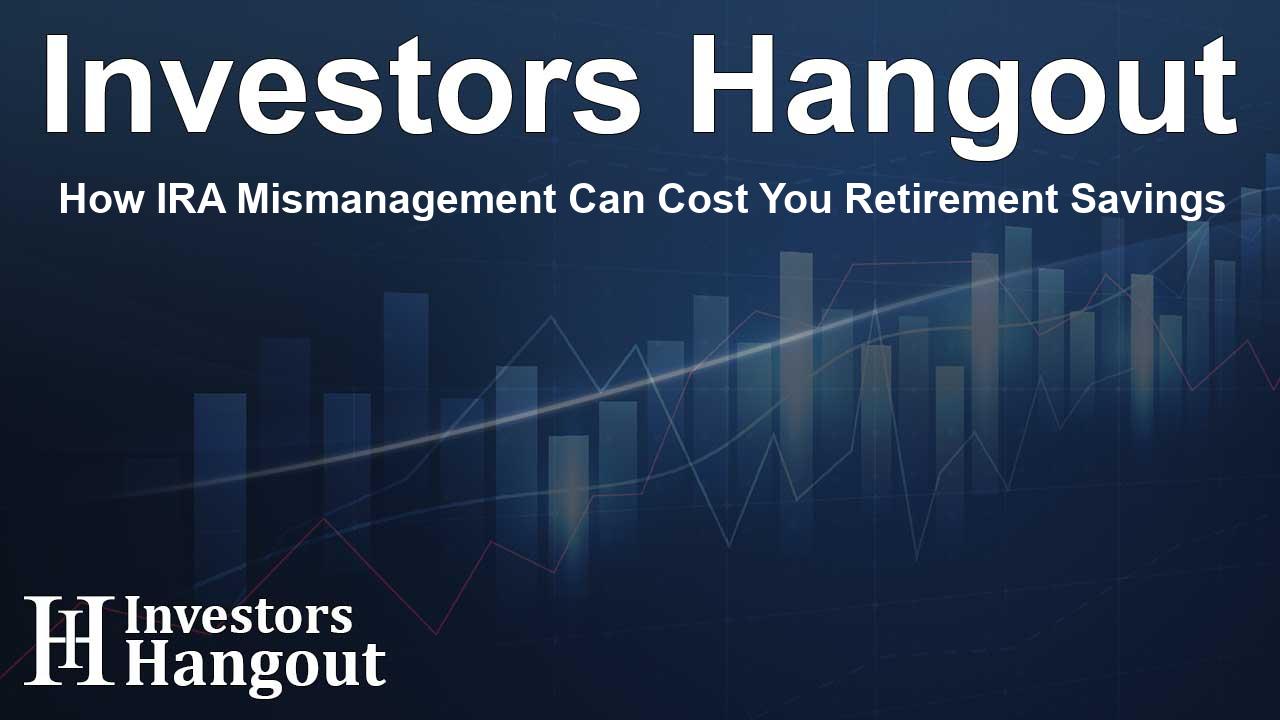How IRA Mismanagement Can Cost You Retirement Savings

Why Retirement Cash Management Matters
Many Americans are unknowingly missing out on significant retirement savings due to common mistakes in managing their Individual Retirement Accounts (IRAs). Research indicates these errors can lead to enormous financial losses, often amounting to hundreds of billions of dollars annually.
The Cash Drag in IRA Rollovers
A major issue comes from the rollover process: when an individual leaves a job and moves their retirement funds from a 401(k) to an IRA. Often, this transfer leaves the funds sitting in cash, earning minimal interest instead of working for the individual's future. A recent study revealed that a staggering 28% of those who rolled over their funds in 2015 had their money parked in cash seven years later.
Financial Consequences of Inaction
The consequences of allowing retirement savings to languish in cash are alarming. Estimates suggest that inaction can cost investors at least $170 billion a year in cumulative retirement wealth. If not properly reinvested, these funds can mean an individual investor misses out on significant growth potential. Research suggests that failing to reinvest could lead to an individual losing over $130,000 by the age of 65 if the rollover occurs at age 55.
Why Do Investors Leave Cash in Their Accounts?
Investors often assume their funds will reinvest automatically or believe that maintaining cash in their IRAs is a safe option. However, many financial professionals note that this assumption leads to a terrible oversight—money that could be greatly appreciated through investment is simply allowed to stagnate.
The Illusion of Automatic Investing
A common misconception is that once rollover funds are set up, the investment process takes care of itself. Unfortunately, this assumption has led many to miss the opportunity to put their money to work. In reality, many IRA providers default funds to cash or cash equivalents instead of investing them actively in the market. When a rollover occurs, the funds are often liquidated and left without immediate investment options.
The Delay in Action
Surveys show that individuals frequently wait an average of nine months post-rollover before taking any action to invest the funds. This inertia is even more pronounced among younger investors, who can allow their rollover accounts to sit in cash for up to seven years. Such behavior indicates a lack of awareness about the status of their funds.
Education and Proactive Investment
To avoid the pitfalls of cash complacency, it's essential for investors to actively monitor their IRA holdings. Financial advisors suggest checking whether your funds are in cash or money market accounts, which generally have lower returns. If your funds are not fully invested, the best course of action is to take steps towards reallocating them into stocks, bonds, or other investment vehicles.
Easier Solutions for Better Outcomes
The dilemma between cash and investment opportunities emphasizes the need for better communication and education from financial institutions. Investment firms are encouraged to proactively remind clients about the status of their rollover IRAs, particularly when funds remain in cash for more than a year.
Streamlining Investment for Future Generations
Establishing a system that automatically reinvests funds could help millions avoid falling victim to the cash trap in retirement accounts. Research has shown that even small amounts of uninvested cash in retirement accounts can accumulate to significant losses over time. Addressing this problem with systematic solutions could benefit retirement savers greatly.
FAQs about IRA Management
What is an IRA rollover?
An IRA rollover is the process of transferring funds from an employer-sponsored retirement plan, such as a 401(k), into an Individual Retirement Account (IRA) when leaving a job.
Why is leaving funds in cash in an IRA a bad idea?
Leaving funds in cash limits the growth potential of your investments, as cash typically earns little interest compared to the potential growth of stocks or bonds.
How can I avoid losing money in my IRA?
To avoid losing money in your IRA, ensure your funds are actively invested in a diversified portfolio and regularly check your account to monitor your investments.
What can I do if my funds are sitting in cash?
If your funds are sitting in cash, consider reviewing and reallocating them into investment options like stocks, bonds, or mutual funds that align with your long-term financial goals.
Is it common for investors to let their IRA funds sit idle?
Unfortunately, yes—many investors are unaware of their fund status and allow significant amounts to remain idle in cash, often for extended periods.
About Investors Hangout
Investors Hangout is a leading online stock forum for financial discussion and learning, offering a wide range of free tools and resources. It draws in traders of all levels, who exchange market knowledge, investigate trading tactics, and keep an eye on industry developments in real time. Featuring financial articles, stock message boards, quotes, charts, company profiles, and live news updates. Through cooperative learning and a wealth of informational resources, it helps users from novices creating their first portfolios to experts honing their techniques. Join Investors Hangout today: https://investorshangout.com/
Disclaimer: The content of this article is solely for general informational purposes only; it does not represent legal, financial, or investment advice. Investors Hangout does not offer financial advice; the author is not a licensed financial advisor. Consult a qualified advisor before making any financial or investment decisions based on this article. The author's interpretation of publicly available data shapes the opinions presented here; as a result, they should not be taken as advice to purchase, sell, or hold any securities mentioned or any other investments. The author does not guarantee the accuracy, completeness, or timeliness of any material, providing it "as is." Information and market conditions may change; past performance is not indicative of future outcomes. If any of the material offered here is inaccurate, please contact us for corrections.